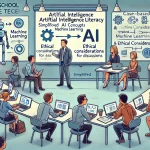
The Future of Bioinformatics: Skills That Make Analysts Irreplaceable
December 26, 2024Bioinformatics is an ever-evolving field at the intersection of biology and computer science. With increasing automation and the rise of biologists learning bioinformatics to analyze their data, many wonder what makes bioinformatics analysts indispensable in the job market. Here’s a comprehensive guide to the skills and strategies that ensure bioinformatics professionals remain vital in research and industry.
1. Mastering Domain Knowledge
A deep understanding of biology is the foundation of bioinformatics. Analysts must not only know how to use tools but also understand the biological context and significance of the data. For instance, in microbial genomics, familiarity with datasets such as S. aureus or S. pneumoniae and their unique characteristics can help identify patterns like homologous recombination, which directly influence the analysis.
Why it Matters:
- Identifying relevant biological questions.
- Designing experiments and validating models.
- Interpreting results with biological insights.
Actionable Tip:
Stay updated on biological case studies and datasets in your field. Learn their history, applications, and limitations.
2. Developing Computational Expertise
While bioinformatics starts with “bio,” computational skills are essential. Proficiency in programming languages like Python, R, and bash scripting, as well as familiarity with biological databases and tools, differentiates professionals from beginners.
Core Skills:
- Writing efficient, reproducible code.
- Using tools like Bowtie2, SAMtools, and BCFTools for genome analysis.
- Applying statistical models and machine learning for advanced analyses.
Actionable Tip:
Contribute to open-source bioinformatics projects on platforms like GitHub. This enhances your coding skills and builds a portfolio.
3. Adapting and Innovating
Bioinformatics is more than running scripts—it’s about innovation. Analysts must know how to:
- Choose the right tools for the right analysis.
- Troubleshoot errors and optimize workflows.
- Develop new tools or adapt existing ones to novel problems.
Why it Matters:
Automation is increasing, but understanding tool limitations and customizing workflows remain critical skills.
Actionable Tip:
Learn basic algorithm development to create or refine bioinformatics tools, even if you’re more biology-focused.
4. Communication and Collaboration
Being an effective bioinformatician requires bridging the gap between wet lab scientists and computational specialists. Explaining results, discussing methodologies, and integrating feedback are vital for success.
Skills to Build:
- Data visualization to make results understandable.
- Writing clear, concise research reports.
- Presenting findings to interdisciplinary teams.
Actionable Tip:
Practice simplifying complex analyses into layman’s terms for non-specialist audiences.
5. Staying Relevant with Emerging Trends
The bioinformatics landscape is shifting with new technologies and methodologies:
- Multi-omics Integration: Combining genomics, transcriptomics, and proteomics data for holistic insights.
- AI and Machine Learning: Automating pattern recognition and predictive modeling.
- Cloud Computing: Scaling analysis with platforms like AWS and Google Cloud.
- Single-cell Analysis: Diving into cellular heterogeneity for precision biology.
Why it Matters:
Employers seek professionals who can leverage cutting-edge tools to solve real-world problems.
Actionable Tip:
Take online courses in AI, cloud computing, or multi-omics analysis to stay ahead of the curve.
6. Soft Skills That Shine
Soft skills often make the difference between a good bioinformatician and a great one:
- Problem-solving: Tackling unexpected issues during analysis.
- Time Management: Handling multiple projects with tight deadlines.
- Lifelong Learning: Adapting to new tools and methodologies.
Bioinformatics vs. Computer Science: Striking the Balance
While some analysts focus heavily on computational methods, bioinformatics is inherently interdisciplinary. It’s not about replacing biology with computer science but integrating both effectively. Professionals like Lior Pachter and Heng Li exemplify how computer science can advance biology-focused research.
Takeaway:
You don’t have to become a software engineer, but a solid understanding of algorithms and data structures can open doors to innovative bioinformatics applications.
Final Thoughts: Career Guidance for Aspiring Bioinformaticians
How to Thrive:
- Balance Breadth and Depth: Be a generalist in basic bioinformatics tools but specialize in a niche like structural bioinformatics or single-cell analysis.
- Engage in Projects: Work on real-world problems to gain experience and confidence.
- Network and Learn: Attend conferences, join forums, and connect with peers to stay updated.
Job Market Insights:
- Academic Careers: Focus on research-oriented skills like grant writing and publishing.
- Industry Roles: Prioritize scalability, automation, and regulatory knowledge.
- Emerging Fields: Explore roles in AI-driven drug discovery or personalized medicine.
By combining biological insights, computational expertise, and innovative thinking, bioinformatics analysts can remain irreplaceable in this dynamic field. Remember, tools may change, but the ability to ask meaningful questions and solve biological problems will always be in demand.

















